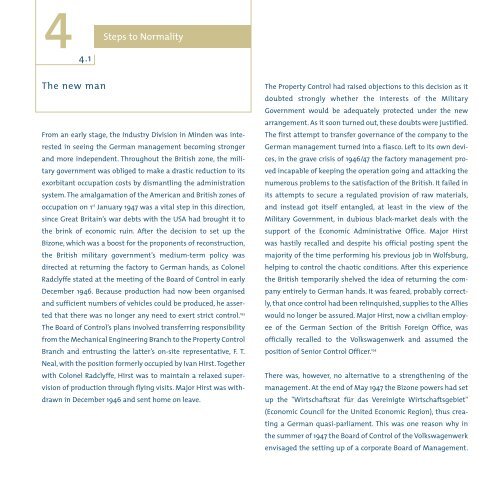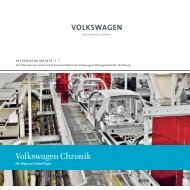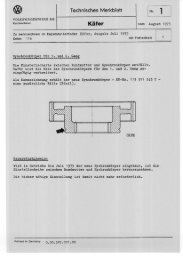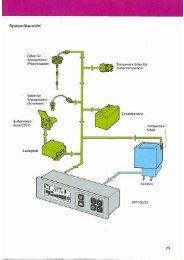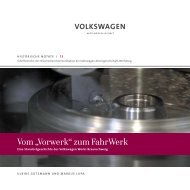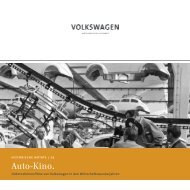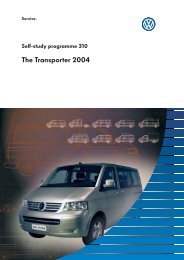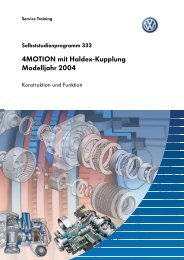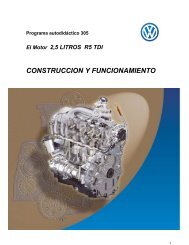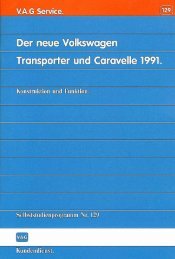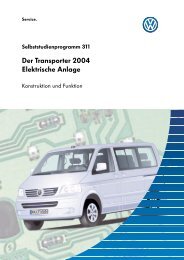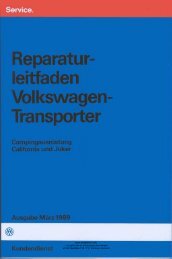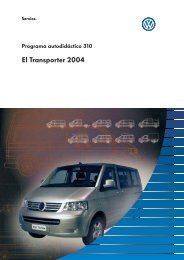HN 2: The British and their Works
HN 2: The British and their Works
HN 2: The British and their Works
Create successful ePaper yourself
Turn your PDF publications into a flip-book with our unique Google optimized e-Paper software.
4<br />
4.1<br />
<strong>The</strong> new man<br />
Steps to Normality<br />
From an early stage, the Industry Division in Minden was interested<br />
in seeing the German management becoming stronger<br />
<strong>and</strong> more independent. Throughout the <strong>British</strong> zone, the military<br />
government was obliged to make a drastic reduction to its<br />
exorbitant occupation costs by dismantling the administration<br />
system. <strong>The</strong> amalgamation of the American <strong>and</strong> <strong>British</strong> zones of<br />
occupation on 1st January 1947 was a vital step in this direction,<br />
since Great Britain’s war debts with the USA had brought it to<br />
the brink of economic ruin. After the decision to set up the<br />
Bizone, which was a boost for the proponents of reconstruction,<br />
the <strong>British</strong> military government’s medium-term policy was<br />
directed at returning the factory to German h<strong>and</strong>s, as Colonel<br />
Radclyffe stated at the meeting of the Board of Control in early<br />
December 1946. Because production had now been organised<br />
<strong>and</strong> sufficient numbers of vehicles could be produced, he asserted<br />
that there was no longer any need to exert strict control. 193<br />
<strong>The</strong> Board of Control’s plans involved transferring responsibility<br />
from the Mechanical Engineering Branch to the Property Control<br />
Branch <strong>and</strong> entrusting the latter’s on-site representative, F. T.<br />
Neal, with the position formerly occupied by Ivan Hirst. Together<br />
with Colonel Radclyffe, Hirst was to maintain a relaxed supervision<br />
of production through flying visits. Major Hirst was withdrawn<br />
in December 1946 <strong>and</strong> sent home on leave.<br />
<strong>The</strong> Property Control had raised objections to this decision as it<br />
doubted strongly whether the interests of the Military<br />
Government would be adequately protected under the new<br />
arrangement. As it soon turned out, these doubts were justified.<br />
<strong>The</strong> first attempt to transfer governance of the company to the<br />
German management turned into a fiasco. Left to its own devices,<br />
in the grave crisis of 1946/47 the factory management proved<br />
incapable of keeping the operation going <strong>and</strong> attacking the<br />
numerous problems to the satisfaction of the <strong>British</strong>. It failed in<br />
its attempts to secure a regulated provision of raw materials,<br />
<strong>and</strong> instead got itself entangled, at least in the view of the<br />
Military Government, in dubious black-market deals with the<br />
support of the Economic Administrative Office. Major Hirst<br />
was hastily recalled <strong>and</strong> despite his official posting spent the<br />
majority of the time performing his previous job in Wolfsburg,<br />
helping to control the chaotic conditions. After this experience<br />
the <strong>British</strong> temporarily shelved the idea of returning the company<br />
entirely to German h<strong>and</strong>s. It was feared, probably correctly,<br />
that once control had been relinquished, supplies to the Allies<br />
would no longer be assured. Major Hirst, now a civilian employee<br />
of the German Section of the <strong>British</strong> Foreign Office, was<br />
officially recalled to the Volkswagenwerk <strong>and</strong> assumed the<br />
position of Senior Control Officer. 194<br />
<strong>The</strong>re was, however, no alternative to a strengthening of the<br />
management. At the end of May 1947 the Bizone powers had set<br />
up the "Wirtschaftsrat für das Vereinigte Wirtschaftsgebiet"<br />
(Economic Council for the United Economic Region), thus creating<br />
a German quasi-parliament. This was one reason why in<br />
the summer of 1947 the Board of Control of the Volkswagenwerk<br />
envisaged the setting up of a corporate Board of Management.


